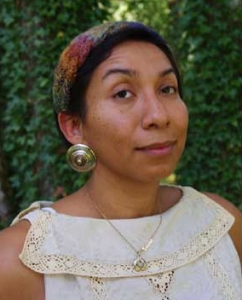In case you missed it, I was published again in the Huffington Post! This time about that time I was trolled by muggles the first time I got featured there (not on HuffPo itself, but on a subsequent publication about my article).
Criticism like that, I can usually brush off pretty quickly since those are clearly not my people. What is often more difficult to brush off is my own self-criticism.
 I was fortunate to have family and community that was supportive of my quirks, but in school and the rest of the world, I didn’t always “fit the mold.” School was not always easy for me, especially before I was identified as gifted. After that, I had the occasional teacher that actually “got” me, but I still had my share of struggles.
I was fortunate to have family and community that was supportive of my quirks, but in school and the rest of the world, I didn’t always “fit the mold.” School was not always easy for me, especially before I was identified as gifted. After that, I had the occasional teacher that actually “got” me, but I still had my share of struggles.
If I was so smart, school would be easy right?
In hindsight, I probably have some degree of ADHD, as most issues I’ve had over the years have been along those lines. I’m what you might call a “chaotic” type of gifted, and I married a more “ordered” type because I thought I needed someone more structured to balance me out.
But it’s not just the chaotic type that are self-critical. In fact, the more ordered type of gifted can be the most self-critical of all. Many of the most gifted people, especially women, have a hard time aknowleging their own gifts.
In this week’s podcast interview with Caitlyn Fitztpatrick Curley, we talked about how many adults don’t even realize they are gifted until they go through the journey of discovering it about their own kids. Some adults may have been identified as a child, but they say “I used to be gifted,” and don’t believe they still are.
This feeling that you aren’t really as talented as you really are is known as imposter syndrome.
Why is it that it is often the most talented who are also the most self-critical? There are a variety of factors, but there are a few common themes:
Asynchronous development – Gifted and talented children often develop different skills at vastly different levels. A child with high academic skills, might lack in their social skills. This makes it difficult as a child to find peers to relate to. This affects us as adults as well as we may have some skills that are significantly more developed than others. For example, I have some great skills at solving complicated problems but some of the most basic life skills, such as keeping up on laundry and dishes, ellude me.
Intensity & Sensitivity – If you’ve followed me long, you are likely familiar with the concept of excitabiity, or over-excitability. When you receive and respond to the world more intensely than others, you can often pick up things that others do not. This can help you create great things, but it can also feel like a burden if/when everything feels so dramatic.
Perfectionism – When you notice small details that go unoticed by others, you can have very high expectations for yourself and others. If you don’t do something perfectly, then you can’t be good at it right? This is likely one of the biggest factors in our own self-ciriticm. We don’t measure up to our own self-imposed standards.
Lack of grit – Grit, or the ability to persist when things get difficult, is by far a greater predictor of success than intellectual ability or talent. Unfotunately, there is often an inverse relationship between grit and abiity. If things came pretty easily as a child, it can become easy to expect everything to be that easy in the future. Once things start to get difficult, you might feel like you really weren’t that good or smart to begin with.
Multipotentiality – Another trait that is often found with giftedness is multipotentiality. Multipotentialites, also known as scanners, pollymaths and/or rainbow people, have many different talents and interest instead of specializing in a narrow field of intererst. Since we are told by society that we should pick one thing and pursue it, we can feel like something is wrong with us when we can’t just settle on one thing.
Self-Regulation – When you feel things deeply, it can be difficult to regulate your energy and emotions. You may go from way up to way down quickly and have a difficult time dealing with stress. This creates a spiral of stress and self-criticism. The thing is though that when we try to self-regulate through willpower alone, we tax our reserves and become less able to self-regulate in the future.
By owning our gifts, we can harness their power instead of focusing on our faults. My coaching goal is to help dynamic women get in touch with their own gifts so that they can use their powers for good rather than evil (or self-criticism). If you’d like to explore your own gifts and powers, you can contact me for a free 1 hour Connect With Your Power strategy call.
